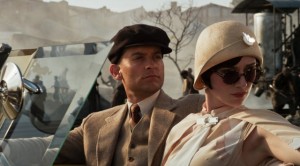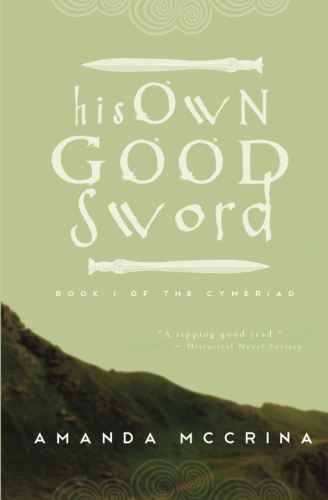I haven’t seen The Great Gatsby yet, but I’m aware of the polarizing effect it’s been having on critics. Its detractors are quick to point out that there’s very little jazz in this Jazz-Age story, and entirely too much 3D. Its defenders—this Huffington Post writer as prime example—are just as quick to point out that if one dislikes 3D then one may just as easily watch the film in 2D. Besides, the rather anachronistic involvement of Jay-Z, Beyoncé, and others on the soundtrack complements the film’s mood quite well. One does not simply walk into Mordor a Baz Luhrmann film expecting historical accuracy, after all.
It’s a decent defense: this is Baz Luhrmann’s film, he can do as he likes with it. But I think another can be made. I feel the critics bashing the film for its lack of attention to historical detail are missing the point. The Great Gatsby isn’t a timeless piece of literature—possibly the Great American Novel—because it’s a window into the lives of New York’s urban elite during the Roaring Twenties.  That’s one valuable aspect of the novel, to be sure, but—at the risk of arguing authorial intent—it’s not the point. The Great Gatsby endures because it’s a window into our lives, particularly ours as Americans—the transience and meaninglessness of material culture, of misguided ambition, of faulty idealism. It’s not specific to one time or place. I don’t think our understanding of The Great Gatsby needs to be confined within the bounds of 1920s New York. Certainly the Twenties gave F. Scott Fitzgerald a ready canvas to work from, but the story of Gatsby’s tragic love for Daisy is just as relevant today as then, just as searing.
That’s one valuable aspect of the novel, to be sure, but—at the risk of arguing authorial intent—it’s not the point. The Great Gatsby endures because it’s a window into our lives, particularly ours as Americans—the transience and meaninglessness of material culture, of misguided ambition, of faulty idealism. It’s not specific to one time or place. I don’t think our understanding of The Great Gatsby needs to be confined within the bounds of 1920s New York. Certainly the Twenties gave F. Scott Fitzgerald a ready canvas to work from, but the story of Gatsby’s tragic love for Daisy is just as relevant today as then, just as searing.
If there’s a problem with Baz Luhrmann’s film it won’t be because of the glittering visuals or the Brooks Brothers costume collaborations or the slick, overproduced, thoroughly modern soundtrack. None of those things compromise the power of the story—as the Huffington Post writer points out, they may even complement the story. The problem will be if the film forgets its own irony.

 I'm a student, amateur historian, coffee connoisseur, movie buff, hockey fan, cat lady, and all-around nerd. I'm currently pursuing a degree in history and political science at the University of West Georgia. In my spare time, I write historical fiction and fantasy. My debut YA historical fantasy novel His Own Good Sword was released on 7 May 2013.
I'm a student, amateur historian, coffee connoisseur, movie buff, hockey fan, cat lady, and all-around nerd. I'm currently pursuing a degree in history and political science at the University of West Georgia. In my spare time, I write historical fiction and fantasy. My debut YA historical fantasy novel His Own Good Sword was released on 7 May 2013.


